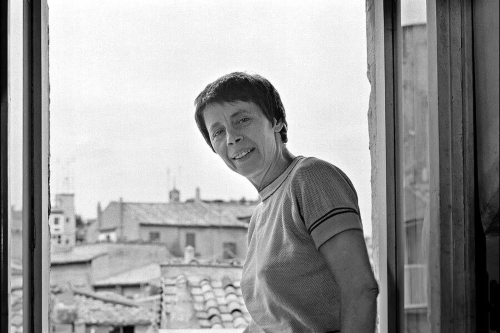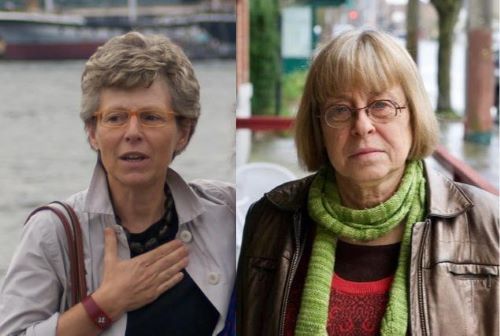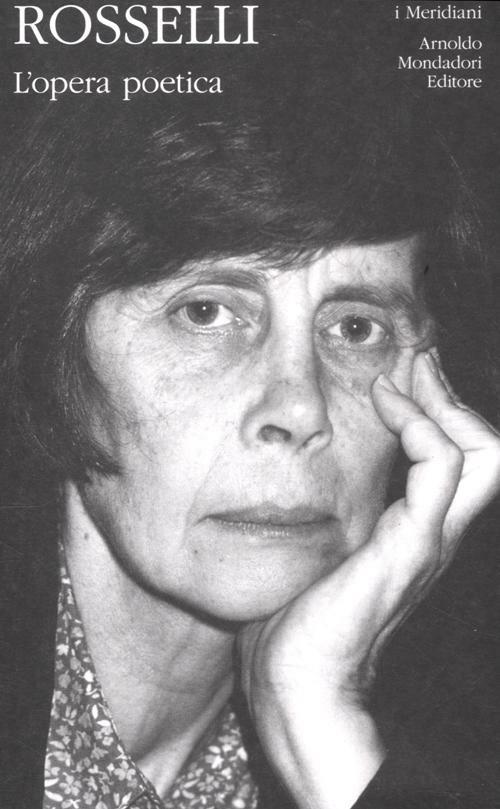Find Ortensia: her mechanics is ejaculatorysolitude. Her solitude is ejaculatorymechanics. Find the monstrous gestures of Ortensia:her solitude is populated with specters, andspecters populate her with solitude. And her loveruminates and can’t leave the house. And thus herlight vibrates between the walls, with light,with specters, with love that never leaves thehouse. With only the specter of love, with love’sreflection, with disenchantment,enchantment and frenzy. Seek Ortensia: seekher vibrant humility that can’t find peace,and that can’t find farewell for anyone, and thatalways bids farewell and to no one, and tips to everyoneher little summer hat, with an uncommon show ofpiety. Find Ortensia who in her solitudepopulates the civilized world with savages. And the guitar’ssong no longer satisfies her. And the guitar’spardon no longer satisfies her! Find Ortensiawho dies among the lilacs, fragile and forgotten.Smiling and fragile among the lilacs of the valleypitying; petrified. Find Ortensia whodies smiling among the lilacs of the valley,find she who dies and smiles and is strangelyhappy, among the lilacs of the villa, of the valleythat ignores her. Populated is her solitude withspecters and fables, populated is her joy withstrange grass and strange flower,—that holds its scent. La Libellula (estratto)Trovate Ortensia: la sua meccanica è la solitudineeiaculatoria. La sua solitudine è la meccanicaeiaculatoria. Trovate i gesti mostruosi di Ortensia:la sua solitudine è popolata di spettri, e glispettri la popolano di solitudine. E il suo amorerumina e non può uscire dalla casa. E la sualuce vibra pertanto fra le mura, con la luce,con gli spettri, con l’amore che non esce dicasa. Con lo spettro solo dell’amore, con lorispecchiamento dell’amore, con il disincanto,l’incanto e la frenesia. Cercate Ortensia: cercatela sua vibrante umiltà che non si sa dar pace,e che non trova l’addio a nessuno, e che diceaddio sempre e a nessuno, ed a tutti sollevail cappellino estivo, col gesto inusitato dellapietà. Trovate Ortensia che nella sua solitudinepopola il mondo civile di selvaggi. E il cantodella chitarra a lei non basta più. E il condonodella chitarra a lei non basta più! Trovate Ortensiache muore fra i lillà, fragile e dimenticata.Sorridente e fragile fra i lillà della vallataimpietosita; impietrita. Trovate Ortensia chemuore sorridendo di tra i lillà della vallata,trovatela che muore e sorride ed è stranamentefelice, fra i lillà della villa, della vallatache l’ignora. Popolata è la sua solitudine dispettri e di fiabe, popolata è la sua gioia distrana erba e strano fiore,—che non perde l’odore.
The Dragonfly (excerpt)
Feature Date
- December 19, 2022
Series
- Translation
Selected By
Share This Poem
Print This Poem
Excerpt from Amelia Rosselli’s The Dragonfly / La Libellula, translated by Roberta Antognini and Deborah Woodard, forthcoming from Entre Ríos Books, 2023.
(Amelia Rosselli, L’Opera Poetica (I edizione I Meridiani, Milano, 2012) pp. 194-213.)
English Copyright © 2023 by Roberta Antognini and Deborah Woodard.
All rights reserved.
Reproduced by Poetry Daily with permission.

Born in Paris in 1930, Amelia Rosselli was the daughter of the martyred antifascist philosopher Carlo Rosselli and the British political activist Marion Cave. Raised in exile, in France, Switzerland, England and the United States, she finally settled in Italy after the war, first in Florence and then permanently in Rome where, devastated after years of struggling with mental illness, she took her own life in 1996. Rosselli was the author of eight collections of poetry (one, Sleep, in English), a translator of Emily Dickinson and Sylvia Plath, among others, and an accomplished musicologist and musician who played the violin, the piano and the organ.

Roberta Antognini is from Canton Ticino in Switzerland and has a Laurea from the Università Cattolica di Milano, Italy and a PhD from New York University. She is Associate Professor Emerita of Italian Studies at Vassar College. She is the author of a monograph on Petrarch, Il progetto autobiografico delle Familiares di Petrarca (2008), and co-editor of the collection of essays Poscritto a Giorgio Bassani (2012). With Deborah Woodard, she has translated Amelia Rosselli’s collections, Hospital Series (2015), Obtuse Diary (2018) and The Dragonfly (forthcoming 2023). With Peter Robinson she is translating Bassani’s poems, In Rhyme and Without (forthcoming 2023).
Deborah Woodard holds an MFA from the University of California, Irvine and a PhD from the University of Washington. She is the author of Plato’s Bad Horse (Bear Star Press, 2006), Borrowed Tales (Stockport Flats, 2012), and No Finis: Triangle Testimonies, 1911 (Ravenna Press, 2018). She has translated Amelia Rosselli with Giuseppe Leporace in The Dragonfly, A Selection of Poems: 1953-1981 (Chelsea Editions, 2009), and with Roberta Antognini, in Hospital Series (New Directions, 2015) and Obtuse Diary (Entre Ríos Books, 2018). Woodard teaches at Hugo House in Seattle and co-curates the reading series Margin Shift.
Poetry Daily Depends on You
With your support, we make reading the best contemporary poetry a treasured daily experience. Consider a contribution today.




